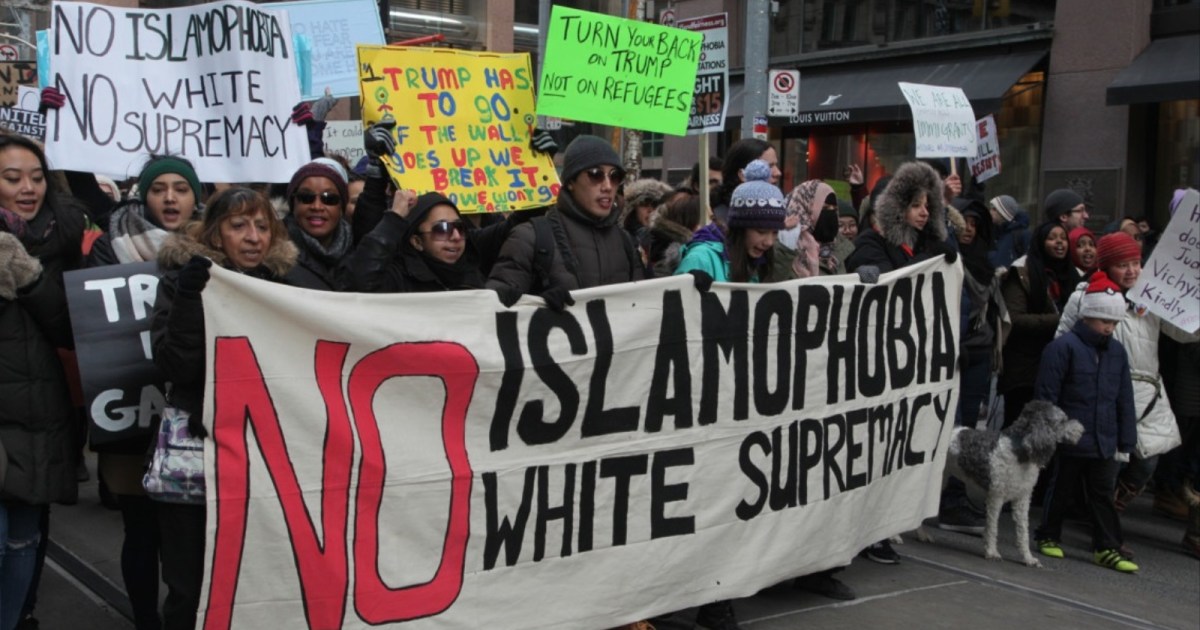In the past decade, extensive studies have been conducted on Islamophobia in Western societies in which Muslims are a minority, yet Islamophobia or anti-Muslim racism is not limited to the geography of the West, but rather is a global phenomenon that affects Muslim societies as well.
And in East Asia, and specifically in Indonesia - which is the largest Muslim country with a population of more than 260 million people, mostly Muslims (88%) - Indonesian thinkers view with concern about the escalation of the "Islamophobia" phenomenon in Western countries.
The term "Islamophobia" means Islamophobia or the pathogenic fear of it, and it suggests prejudice against Islam, its hatred, Muslim hatred, fear of them and sometimes attacking them.
In separate statements to the Anatolia Agency, Indonesian experts and academics attributed the reasons for the escalation of the "Islamophobia" phenomenon to 3 reasons, the most prominent of which was the persistence of the Western media product mistaken about Islam.
Far-right terrorism
Ahmed Suwaidi, a lecturer at Nahdat Ulama University in Indonesia, says that the phenomenon of "Islamophobia" in Western countries is no longer limited to job discrimination, but is also manifested in violence, physical assault and terrorism.
Al-Suwaidi enumerated scenes of "Islamophobia" in the West, starting with the results of the British referendum on leaving the European Union (Brexit), until Donald Trump's victory in the presidency of the United States.
He explained that the phenomenon of anti-Islam culminated in the massacre of two mosques in New Zealand last year, which is the terrorist attack that left more than 51 people dead, in addition to the persecution of Rohingya Muslims in Myanmar.
The attack in Christchurch, New Zealand, in March of last year opened the file of the extreme right movement in the West, especially after it took on a more violent and cross-border nature.
The attacker, Brenton Tarrant, had expressed his pride in his comrades who had carried out similar attacks in Italy, Canada, Norway and the United States, and had invited right-wing extremists around the world to carry out similar attacks in other countries.
Issues of racial white supremacy, hostility to Muslims, immigration, and refugees have been a priority of the far-right agenda, and Muslims are a major target of groups that, with their shift to violence, have become a source of local and global threat even in countries known to high levels of safety and diversity such as New Zealand.
Radical right-wing nationalist groups and "white terrorists" used digital platforms and social networks to recruit new supporters in a manner similar to that used by other extremists, and adopted a global agenda to fight against what it calls a "common Islamic enemy" in defense of "the Christian or white West."
The role of the media
In turn, Hamid Fahmy Zarkassi, Vice President of the Indonesian University of Dar es Salaam, said that the media are clearly contributing to the perpetuation of anti-Islam and Muslims in the West.
Zarkassi explained that although the elites in Western societies have a better understanding of Islam, they are sometimes affected by the discriminatory and hostile media discourse.
He stressed the existence of mutual understanding between the different religious communities regarding freedom of worship and the practice of rituals, but the crisis lies with the non-believers, as they do not know anything about Islam, according to his opinion.
Zirkasy cited the experience of Indonesia, as it is the largest country in terms of the number of Muslims, yet it respects diversity and diversity, and is keen to communicate and understand with different religious societies.
Dialogue is key
The Dean of the Faculty of Social and Political Sciences at the Islamic University of "Syarif Hidayat Allah" considered Ali Mannif the phenomenon of "Islamophobia", one of the most important manifestations of globalization and the identity crisis.
He said the rise of Islamophobia in the United States and Europe indicates that the West "was not prepared to accommodate immigrants with their different backgrounds and cultures."
Menaheen explained that the absence of dialogue in Western countries left the identity crisis that resulted in violence against society, race and religion, which then formed the "Islamophobia" phenomenon.
He pointed out that Western societies have a culture of knowing the truth of Islam, but that most of the new generations arose on the discriminatory and anti-Islam ideas and Muslims for political reasons.
Mennif called for the importance and necessity of opening channels of communication and religious dialogue with Western countries, to correct the misconceptions that fuel this conflict.
Last November, the European Commission against Racism and Intolerance of the Council of Europe warned - in a report - of the spread of racism and xenophobia, the phenomenon of Islamophobia and anti-immigration in the countries of the continent and its impact on the political scene.
And the Turkish "Sita" Center for Research and Studies (based in Ankara) in the report "Islamophobia in European Countries 2019" last Sunday monitored the different aspects of discrimination suffered by Muslims in those countries.
While the European Commission against Racism and Intolerance mentioned in its annual report that the elections to the European Parliament and the parliaments of European countries "witnessed a new increase in the popularity of extremist national parties."

